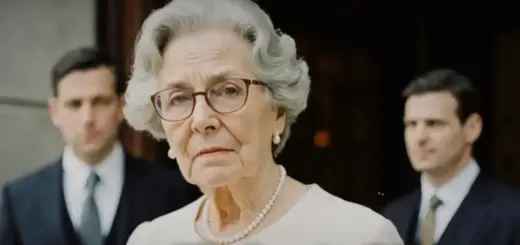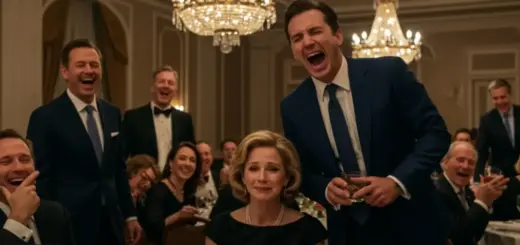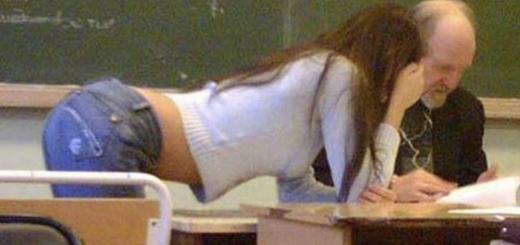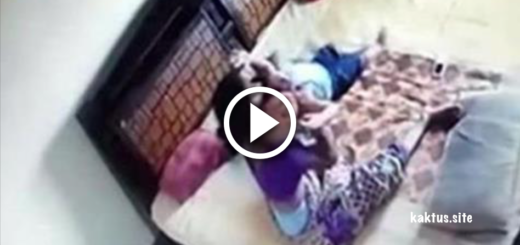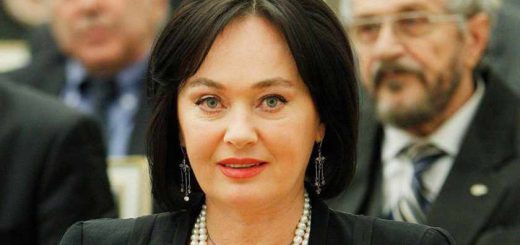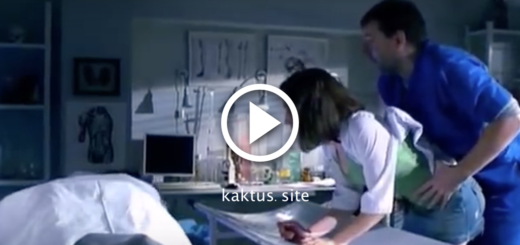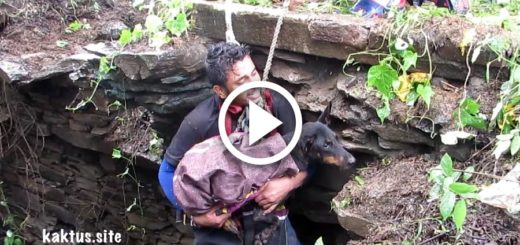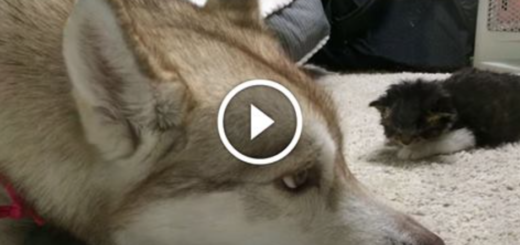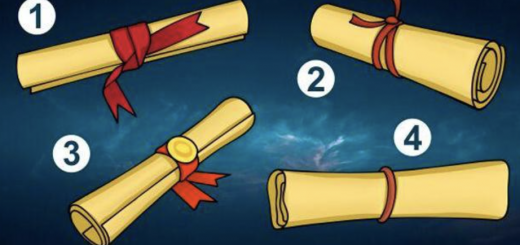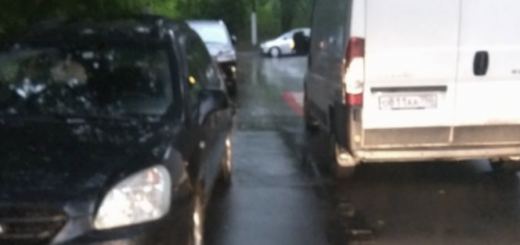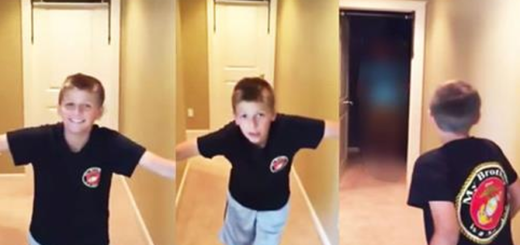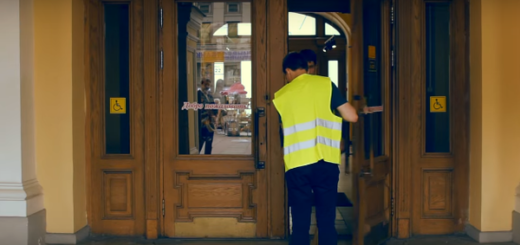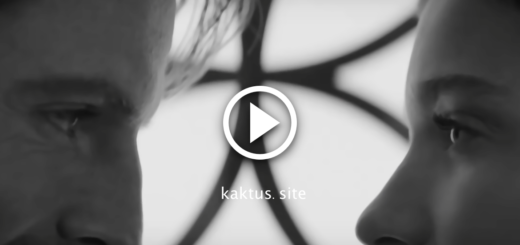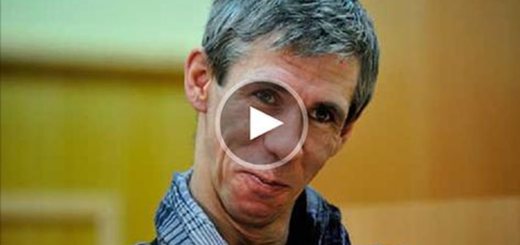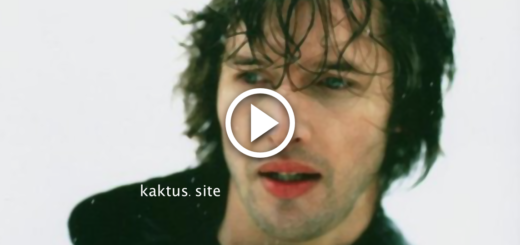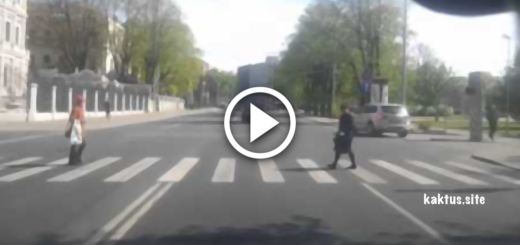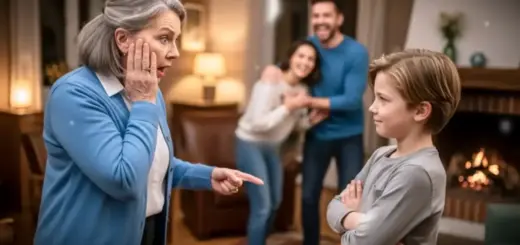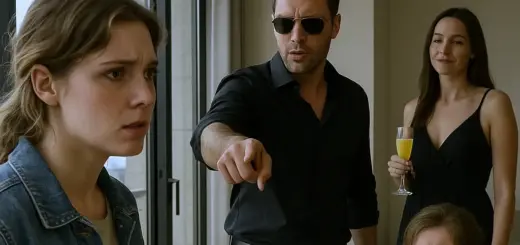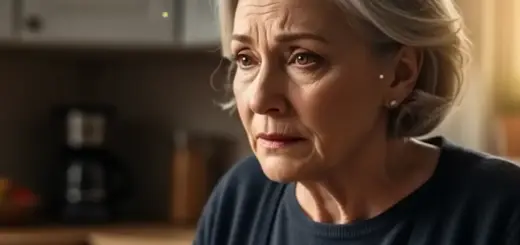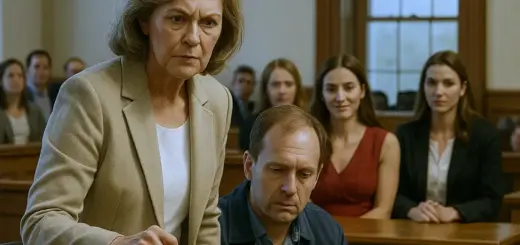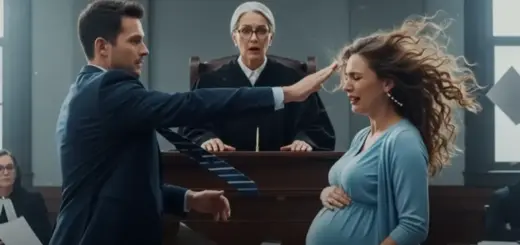That night, I sat at my vanity and practiced. My voice, my face, the way my shoulders curved when I wasn’t fighting. I rehearsed the apology until it felt like a lullaby I could sing in my sleep. I didn’t cry. Not anymore.
I looked at myself in the mirror and said aloud, «You’re done crying. Now you perform.»
The next afternoon, I pulled up to the penthouse like I was visiting for Sunday dinner. I wore soft colors, no makeup except mascara. My hair was pulled back in a way Mom used to like: harmless, controlled.
Calder opened the door himself. He looked pleased, smug even, like he’d already written the ending to this story and I’d just shown up to read my lines. «Well,» he said, leaning one arm on the frame, «didn’t expect to see you so soon.»
I smiled, soft and strained. «I came to make peace.»
He stepped aside and let me in. The living room looked different, colder, more expensive. A new marble coffee table sat between two pale gray chairs. A massive, abstract, and ridiculous oil painting hung above the mantle. Everything that once felt like my parents had been stripped away.
Sable was in the kitchen, arms crossed, eyes narrowed. She didn’t speak.
Calder gestured toward the couch. «Sit. Can I get you something? Tea?»
Before I could answer, Sable said with a half-smirk, «Mother says it helps calm nerves.»
He laughed. I nodded. «Tea sounds nice.»
As he walked into the kitchen, I reached into my purse and clicked the voice recorder app. My phone sat in plain sight on the table, screen dark. They didn’t notice. Calder returned, placing the cup down carefully. I didn’t drink it. I set it beside the marble tray where the keys now sat. Polished, untouched, a trophy.
He sat across from me, legs crossed, relaxed like a man who thinks he owns everything in the room. «You know,» he said, «peace comes at a cost. You gave them the house. Maybe next time you’ll read the fine print.»
I tilted my head. «Maybe.»
Sable finally spoke. «Why are you really here?»
«To make peace,» I repeated. «That’s all.»
The rest of the visit blurred into hollow chatter. He bragged. She smirked. I nodded, small and quiet. I let them believe I was shrinking. But I saw everything: the new router under the TV, the luxury watch Calder couldn’t afford last year, the family photo replaced with one of Sable’s sons standing by the pool. My father’s slippers were gone from the back door.
When I stood to leave, Calder didn’t walk me out. Sable watched me like a hawk. But as I stepped into the hallway, I caught a glimpse of the hallway mirror, the one that used to reflect family dinners and birthday toasts. My mother’s face appeared in it, behind the door. She didn’t speak, just mouthed two words: Be careful.
I didn’t look back. I just walked to the elevator, chest tight, throat dry.
Back in my car, I plugged in my phone and uploaded the audio file directly to Linnea. It took seconds. Her reply came faster than expected. Got it. We’re in motion. Let’s make them pay.
Linnea’s message was still on my screen when I finally fell asleep, long after midnight. It was the first time in weeks that I felt like I could breathe, like I had a plan, a path forward. But by sunrise, everything had changed.
My phone wouldn’t stop buzzing. First, it was a low, insistent hum on the nightstand. Then it lit up, flashing with missed calls, texts, and app alerts—dozens of them. I blinked through the early morning light, confused.
Then I saw it. My name, trending on local Austin forums and community gossip pages. Even the morning radio segment had picked it up. The headline was brutal: Daughter scams her elderly parents out of their home.
I sat up, the blanket tangled around my legs, heart racing. The post had everything. A photo of me, smiling, handing the penthouse keys to my father. The same moment I’d thought was sacred. The caption twisted the knife: She promised her dad peace, then kicked him out a week later.
Below it, hundreds of comments piled up by the second. What kind of daughter does this? Greedy. Disgusting. I hope the parents sue her into the ground.
The pictures weren’t just from that day. They were curated. Me entering the building, leaving. A blurry shot of my car. Even one of my mother on the balcony, looking out like some tragic widow. And in every shot, Calder looked like the grieving hero.
He’d done it. He struck first, and digitally. It wasn’t about truth. It was about image. Reputation. Control.
I tried to call my mother. No answer. My father. Straight to voicemail. I tried again. Then again. Nothing.
A few minutes later, a text came through. From Sable: You brought this on yourself. Maybe next time you’ll think before humiliating the family.
Humiliating the family? I sat there. My body frozen. My hands limp at my sides. It wasn’t rage. Not yet. It was something colder. Like my insides were being erased.
Then the email came. From a longtime client. Elowen, I came across something online. I hope it’s not true. But if it is, we may need to pause our project.
I replied the best I could: It’s not true. I’ll explain soon. But even that felt weak, like I was shouting underwater.
By early afternoon, I stopped trying to defend myself. I closed my laptop, muted the notifications, and sat on the floor of my living room. Eyes open. Mind blank. No tears came. Just silence.
I must have stayed like that for over an hour. Maybe more. Until the phone rang. It was Linnea.
«Don’t post anything,» she said immediately. «Not a word.»
I nodded, even though she couldn’t see me.
«They want you loud, Elowen. They want you frantic. That makes it easier to paint you as unstable. Don’t fight noise with noise.»
I barely got the words out. «They used pictures from inside the building.»
«We think it was Mireya,» Linnea said. «She’s under pressure. Calder’s likely offering her something.»
I closed my eyes. Mireya had always been kind, polite. But in this story, kindness had an expiration date.
«They’re building a narrative,» Linnea continued. «A false one. But if we stay the course, we’ll burn theirs to the ground. And we’ll do it with facts.»
I took a deep breath. «Good,» I said. «Then let them build it. We’ll light the match.»
That evening, I drove across town without really thinking. I didn’t tell Linnea. I didn’t tell anyone. I just needed to see it for myself. I parked two blocks from the penthouse and walked the rest of the way, staying in the shadows.
It was just past eight, and the lights were on inside. I stayed across the street, tucked behind a tree. Through the tall balcony windows, I saw them: Sable, laughing; Calder, glass raised in some kind of toast. My mother sat at the table, motionless, her shoulders hunched, her head low. And then, slowly, she brought her hands to her face. She was crying.
I didn’t move. I didn’t breathe. And I didn’t look away. That scene burned into my mind. Not just the betrayal, but the performance of it all. The spectacle, the manipulation. And my father? He wasn’t there.
I don’t know how long I stayed, only that the cold finally crept through my sweater and into my skin. I turned back toward my car, my footsteps quiet on the pavement.
«They want me humiliated,» I whispered. «Let them have it. For now.»
Because this time, the humiliation didn’t crack me. It focused me. My anger wasn’t fire anymore. It was ice. Still. Precise. Dangerous.
Back at home, I didn’t turn on the TV. I didn’t reopen my laptop. Instead, I sat at the kitchen table, where the morning sun used to hit just right on weekends. I stared at nothing and planned everything. I knew how this story ended. Not with their victory, but with mine.
I finally opened my laptop near midnight. The articles were still there, the forums still buzzing. Calder had even posted a new picture: him standing by the front door, holding the penthouse keys. The caption read, Finally home.
In the background, I saw it. The teacup. The one my mother used every morning. Now just a prop in his stage delusion.
I closed the browser. My face, reflected faintly on the dark screen, was calm. «If they want war,» I whispered, «they’ll get it.»
My phone lit up with a new message from Linnea. Meet me tomorrow. I have something that changes everything.
Linnea’s message stayed with me through the night, like a thread pulling me forward through the dark. I didn’t sleep much. I didn’t need to. Something inside me had shifted. No more second-guessing. No more wondering if I was overreacting. Now I knew: this wasn’t just betrayal. This was theft, abuse, and calculated humiliation. And they were about to learn what it meant to underestimate me.
By late morning, I was standing in the lobby of Linnea’s downtown office. The windows stretched floor to ceiling, framing the Austin skyline like a courtroom of its own. That building had always smelled like polished wood and quiet power. Today, it smelled like vindication.
Waiting by the glass doors were two men in tailored suits, mid-forties, slicked hair, fake smiles. I didn’t recognize them, but I knew the type.
«Ms. Keating,» one of them said, stepping forward. «Calder Redmond authorized us to offer you a settlement. If you walk away quietly, you’ll retain a portion of the trust, a generous one considering the circumstances. But if you pursue this publicly…» He trailed off, letting the threat hang in the air like smoke.
Linnea didn’t blink. She stepped up beside me, calm as a glacier. «Otherwise what?» she asked, voice steady. «You’ll expose your client’s forged records? Harassment? The fraud that’s already under legal review by the city?»
Silence. The men looked at each other. The taller one shifted his jaw, adjusted his cufflinks, and said nothing. They left without another word.
When the doors shut behind them, Linnea turned to me and smiled. Not the warm kind, but the kind a surgeon gives right before the incision. «They blinked first.»
We walked into her office and sat down across from each other. She slid a folder across the table. «Here it is. Everything we needed.»
Inside were the HOA documents Calder had manipulated but not filed with the city. Linnea had already submitted the originals from my father’s study. The legal records still recognized me as the sole trust holder.


